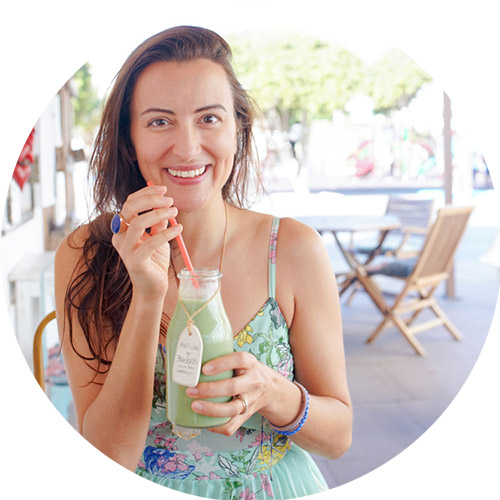Hi.
Welcome to my website. Here you'll find my latest features and writing. Feel free to roam around and get in touch if I can be of service! KW

Welcome to my website. Here you'll find my latest features and writing. Feel free to roam around and get in touch if I can be of service! KW
Louisa, 43, is co-founder of Toast Ale
Food production is the biggest contributor to climate change, responsible for 80% of deforestation and 70% of freshwater use. Yet, one third of all food (and 44% of all bread) is wasted. Louisa set up Toast Ale in December 2015. Toast Ale is brewed using surplus fresh bread and all profits go to charities dedicated to fixing the food system.
Louisa says: ‘We see surplus bread as a valuable ingredient. We work with the sandwich industry to source the heel ends of loaves - the bit not good enough for sandwiches. This replaces one third of the malted barley in our brew. We have now brewed with our 2millionith slice of surplus fresh bread, donated over £40,000 to charity and become a Certified B Corp.’
Annabel, 39, uses wonky strawberries to make Deliciously British jam.
As a fifth generation Yorkshire farmer, Annabel wanted to think of ways to help the family farm evolve. Perfect, beautiful strawberries sell well in supermarkets, but no-one wants the wonky ones. Annabel loves the wonky ones! In 2019 she launched Annabel’s Deliciously British and she now farms 1800 tonnes of strawberries which are sold in compostable punnets in Ocado and Whole Foods. In June 2020, Annabel launched Annabel’s Strawberry Conserve, making use of wonky strawberries too imperfect for supermarkets and restaurants. She also launched Tame & Wild non-alcoholic drinks - the Strawberry and Lime Flower cordial makes further use of wonky strawberries.
Tessa, 44, is co-founder of OLIO, the neighbourhood food sharing app.

The idea for OLIO came in December 2014. Tessa was moving from Switzerland back to England and had packed up her boxes, but still had six sweet potatoes, a cabbage and some yoghurt. She didn’t want to throw them away but didn’t know how to go about giving them away. She says: ‘I thought there should be an app where I could share the food with someone nearby who wants it. None such app existed. I mentioned the idea to my friend Saasha and together, in 2015, we created OLIO to connect neighbours to give away spare food and household items.’
The average family throws away £700 worth of food a year but now, over 2.5million people have joined OLIO and over nine million portions of food have been shared. Tessa adds: ‘In the first lockdown, our campaign #cook4carers saw 30,000 meals being prepared and shared for free. The pandemic hit so many people hard. Children are hungry, key workers are exhausted. So we’ve launched #cook4kindness - asking people to share an extra meal to help struggling families in lockdown three. If you can bake or cook a little extra, then drop it off for a neighbour in a safe, contact-free way, you can deliver kindness on the doorstep.’
Brother and sister team John, 43, and Ashley, 49, along with their friend Laura, 39, run The Wonky Food Company.

John and Ashley came up with the concept in 2017 and joined forces with Laura, who was a professional caterer, to launch The Wonky Food Company. The ethos is to encourage everyone to value more and waste less, by packing their products with tasty imperfection. They work with farmers, suppliers and retailers to collect imperfect and surplus fruit and veg, which they then turn into chutneys and relishes such as Chilli Tomato Relish, Zesty Lime Relish and Tangy Onion Relish.
They are currently seeking investment so nervous about having their exact turnover in the public domain and ask, if they are chosen, could they say turnover is in the region of £100k rather than a specific figure. I said I would ask...
Not sure about this one as FoodCycle has been around longer than five years, but Mary became CEO in 2016 has turned it into what it is now (and was recently given an MBE) :

Mary, 54, is CEO of the charity FoodCycle. She says: ‘I’ve always been passionate about food, graduating from Reading University in Food Science, Food Economics and Marketing. I began working in the food industry developing biscuits and cereals for major supermarkets but wanted to do something more fulfilling. I joined FoodCycle in late 2013 and became CEO in November 2016. I recognised FoodCycle had the potential to develop communities through social dining, whereby guests and volunteers shared a three-course meal. The organisation has grown from 400 community dining events per year to 2,035 (2019), at 42 locations across the country. Every meal we share is made from surplus food. I believe we can tackle loneliness and food poverty. Sharing a conversation, over a meal, can have an incredible impact on wellbeing.’